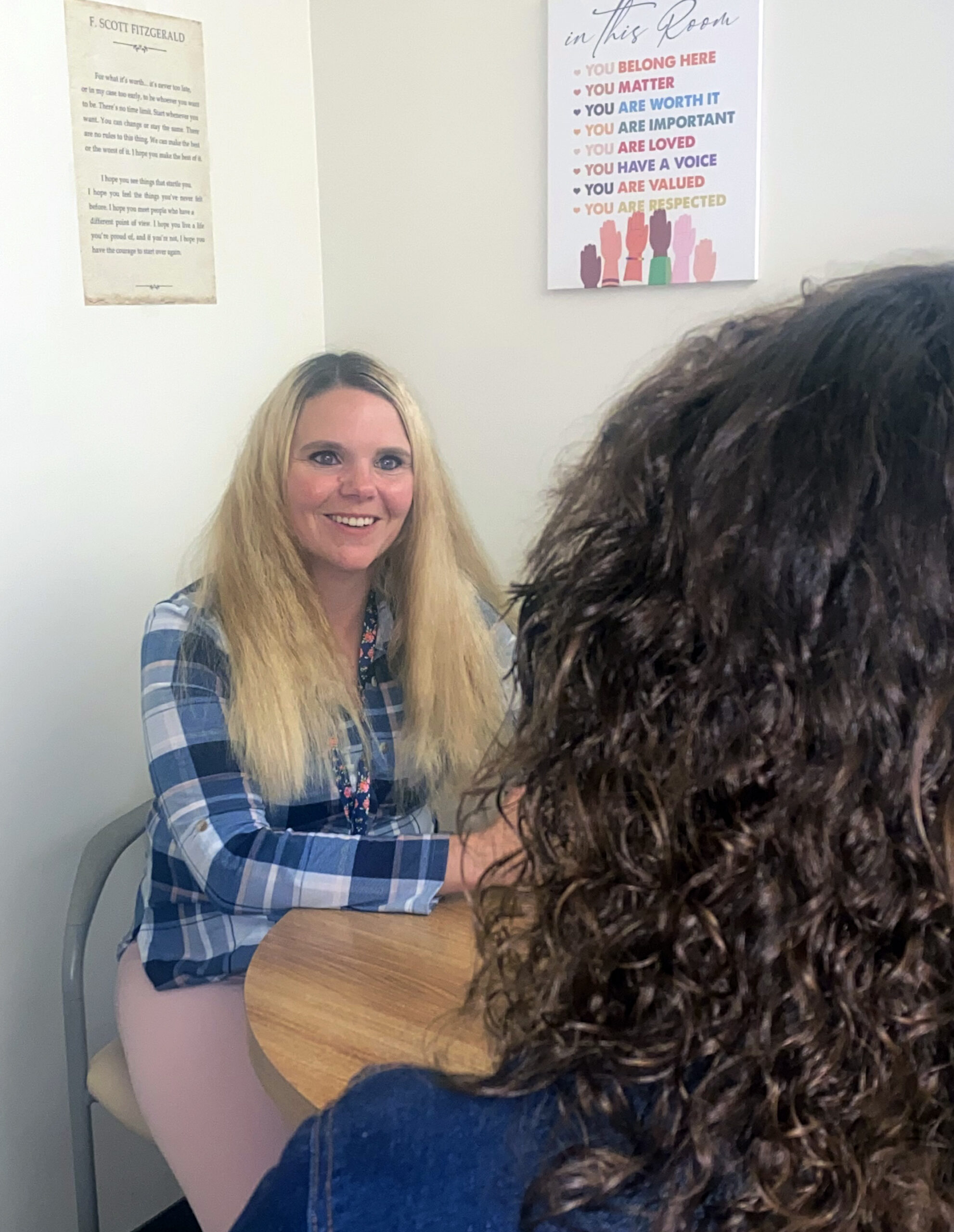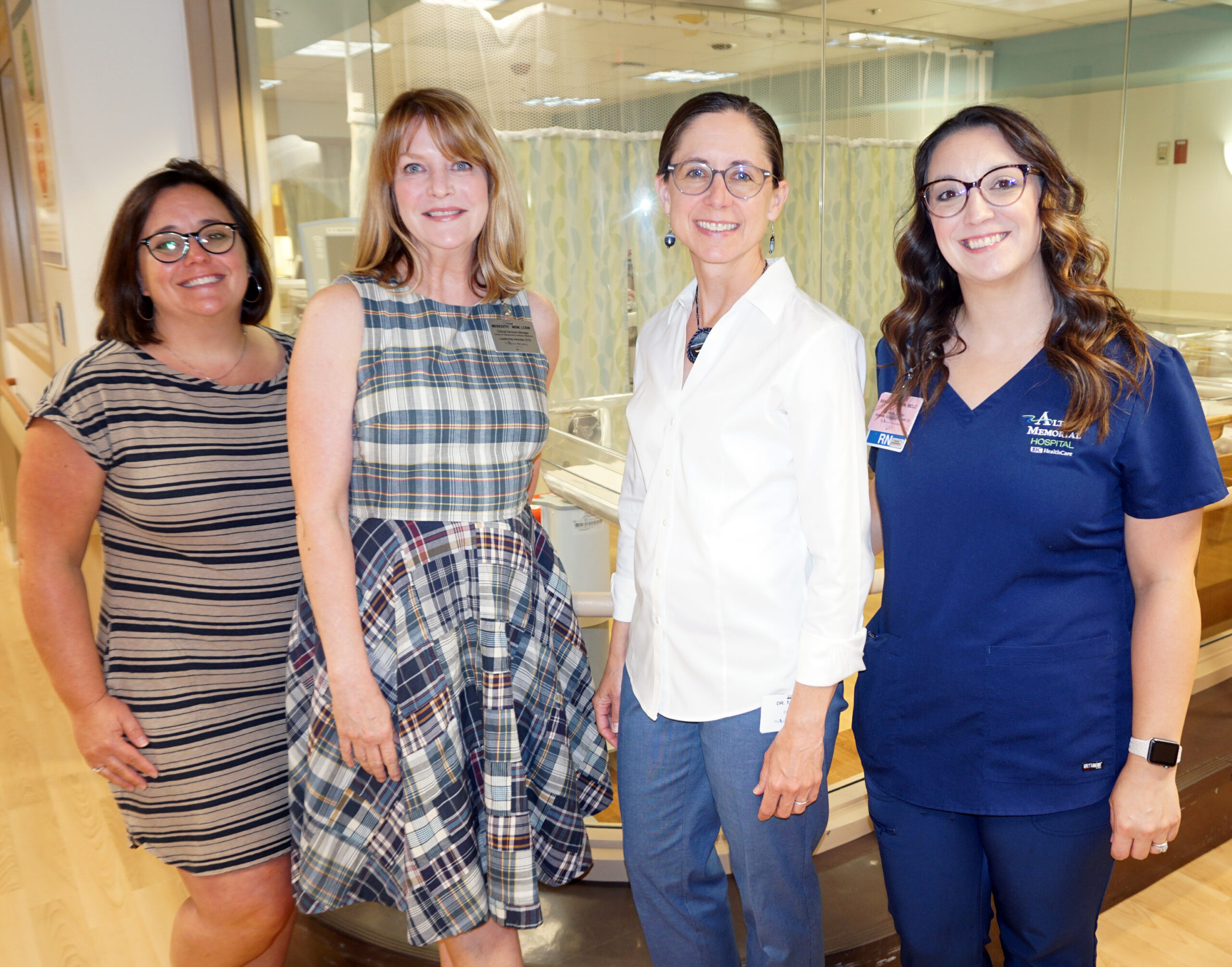

ALTON, IL – Thanks to a successful grant request, the Women’s Health and Childbirth Center at Alton Memorial Hospital received more than $73,000 this year to help make sure the numerous area pregnant and postpartum women facing health inequities due to social and economic factors receive the help they need.
These funds allowed the hospital to hire an additional peer recovery specialist to focus exclusively on the needs of the Women’s Health and Childbirth Center. Most importantly, the funds provide universal screening for Social Determinants of Health (SDOH) such as mental health issues, substance abuse, food insecurity, and housing instability.
Kathy Alford-Spitze is the peer recovery specialist added for this position.
“I want to work with women during their pregnancy and afterward because it is something that hits close to home for me,” Kathy said. “As a mom of two biological children and three adopted children, there were a lot of times that I needed help and I was unsure where to turn. I do not want anyone else to feel that way or feel as though they are alone.
“I want to be able to help connect people to the resources that they need, so hopefully their lives can be a little bit easier during an already hectic time of adding a new addition to the family.”
Based on the results of the screenings, Kathy provides interventions and care coordination as needed.
“The peer recovery specialist follows each patient for a minimum of three months and up to a year, depending upon the patient’s needs and clinical presentation, providing support, case management, linkage to treatment and other community resources,” said Meredith Parker, manager of Clinical Services for the AMH Center for Behavioral and Addiction Medicine. “The more you know about your patients, the better you can treat them.”
The main goal of the funds is to “address and alleviate some of the effects Madison County has experienced related to the opioid epidemic,” said Parker, who added that there is an option to reapply for these funds each year for up to 18 years.
According to the Illinois Perinatal Quality Collaborative (ILPQC), overdose is the leading cause of maternal death in Illinois. Between 2008 and 2017, pregnancy-associated deaths from opioid poisoning increased tenfold. Mothers with substance use disorders often have inadequate prenatal care, attend fewer prenatal visits, have poorer nutrition compared to those without substance use disorders, and have higher rates of birth complications. Substance use disorders among pregnant women are linked to preterm birth, low birth weight, and higher rates of NICU admissions.
“I want them to know that they have a place to turn to when they need a bit of direction and that it is okay to ask for help when it is needed,” Kathy said. “Moms care and look out for everybody else, so someone needs to care and look out for the moms.”
“We know significant racial disparities in health outcomes exist for our pregnant and postpartum patients,” said Renee Strowmatt, educator for Alton Memorial Hospital’s Women’s Health and Childbirth Center. “This grant helps streamline the process of obtaining Social Determinants of Health in our birthing patients, which reduces maternal disparities, promotes equity, and improves the overall outcomes of our patients and their babies.”

